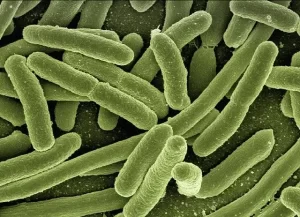Skin darkening is of great significance to the prevention of skin cancer
- Did Cloud Seeding Unleash a Deluge in Dubai?
- Scientists Identify Gut Bacteria and Metabolites that Lower Diabetes Risk
- OpenAI’s Model Matches Doctors in Assessing Eye Conditions
- UK: A Smoke-Free Generation by Banning Sales to Those Born After 2009
- Deadly Mutation: A New Monkeypox Variant Emerges in the DRC
- EPA Announces First-Ever Regulation for “Forever Chemicals” in Drinking Water
Cell: The biochemical pathway of skin darkening is of great significance to the prevention of skin cancer
Skin darkening is of great significance to the prevention of skin cancer. Scientists have discovered a skin pigmentation mechanism that can darken human skin as a natural defense against ultraviolet (UV) related cancers.
Scientists at Massachusetts General Hospital (MGH) have discovered a skin pigmentation mechanism that can darken human skin as a natural defense against ultraviolet (UV)-related cancers. Mediating this biological process is an enzyme called NNT, which plays a key role in the production of melanin (a pigment that protects the skin from harmful ultraviolet rays). Inhibition of melanin through topical drugs or ointments may reduce melanin Risk of skin cancer.
The research was published on the website of the journal Cell.
David Fisher, director of the Department of Dermatology at MGH, senior and co-corresponding author, said: “Skin pigment and its regulation are crucial because pigments provide the main protection against UV-related skin cancers, which are the most common malignant tumors in humans. “
“The light scattering and antioxidant properties of melanin can better protect people with darker skin from carcinogenic ultraviolet radiation, and people with the whitest and lightest skin have the highest risk of skin cancer.”
By studying human and animal skin models in the laboratory, MGH researchers simulated the natural protection of dark pigmented humans. In the process, they have a more comprehensive understanding of the biochemical mechanisms involved in their driving factors, and they may be affected by local factors that do not rely on ultraviolet radiation, sun exposure, or genes.
“We hypothesize that the enzyme that oxidizes the amino acid tyrosine in the melanosomes (the synthesis and storage space of cells) to make melanin is largely regulated by gene expression,” Fisher explained. However, they were surprised to find that the amount of melanin produced is largely controlled by a completely different chemical mechanism, which can ultimately be traced back to an enzyme in the mitochondria of the cell’s lumen. This enzyme has changes. The ability of skin pigmentation.
This enzyme is nicotinamide nucleotide transhydrogenase, or NNT for short. Researchers found that topical application of NNT small molecule inhibitors can cause human skin to darken, while mice with reduced NNT function showed increased skin pigmentation. To verify this finding, they emitted ultraviolet radiation to the skin and found that darker pigmented skin can indeed protect DNA from UV damage.
“We are excited about the discovery that it can be used to analyze different pigmentation mechanisms, and in further research and safety assessment, provide a basis for a new skin darkening and protection method. Of course, the primary goal is to improve skin cancer prevention strategies. And to provide effective new treatment options for millions of people suffering from pigment disorders.”
(source:internet, reference only)
Disclaimer of medicaltrend.org
Important Note: The information provided is for informational purposes only and should not be considered as medical advice.



